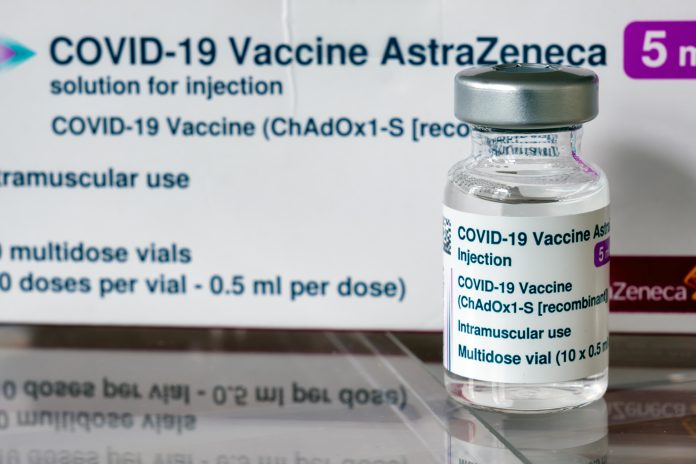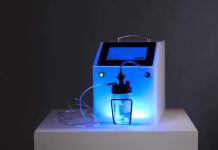Public Health England (PHE) found that two doses of the Pfizer and AstraZeneca vaccine could still keep patients with the Delta variant out of hospital – but both are now less able to stop infection in the first place
The UK’s planned full ‘unlockdown’ date of 21 June has now been delayed, due to a rising rate of infection from the Delta variant.
‘Cause for concern’, said Professor one month ago
Back in May, the ongoing REACT study began to pickup the first cases of Delta in the UK. Professor Steven Riley, Professor of Infectious Disease Dynamics at Imperial, said at the time: “The fact that our study detected the Indian variant among a small number of samples could be cause for concern.”
One month ago, PHE released early observations suggesting that both Pfizer and AstraZeneca are only 33.5% effective against Delta with only one dose.
The Delta variant, originating in India, was partially responsible for the devastation unfolding there – access to oxygen became precious, as patients begun to die in huge swathes due to lack of resources. At the time, Prime Minister Modi continued to campaign in State leadership elections, gathering huge crowds.
Writing for The Guardian, Arundhati Roy reflected on how India got to this point: “India spends about 1.25% of its gross domestic product on health, far lower than most countries in the world, even the poorest ones.”
On 25 May, over 300,000 deaths were officially documented in India. The daily death toll broke world records for virus deaths.
Now, the Delta variant is in the UK. The UK is significantly more well-vaccinated, preventing a huge rise in hospitalisations and deaths – but a relaxation in rules would give the virus even more capacity to infect and spread, naturally increasing hospitalisations and deaths among those who are still unvaccinated.
New study on vaccine efficacy against Delta
Now, a new study by PHE finds that both Pfizer and AstraZeneca vaccines, when both doses are taken, creates a high level of protection against hospitalisation. Two shots of Pfizer make an individual 96% likely not to be hospitalised, with two doses of AztraZeneca pushing the anti-hospitalisation percentage to 92%.
However, the vaccines are not as strong at suppressing symptomatic infection. Essentially, with the vaccines the chances of severe illness and death are significantly lower – you may still be able to catch a mild form of COVID-19.
The vaccines are also taking longer to have a protective effective, requiring over two weeks to give a substantial level of protection.
The study looked at 14,019 cases of the Delta variant, with 166 hospitalised by the mutated virus.
Dr Mary Ramsay, Head of Immunisation at PHE, said: “These hugely important findings confirm that the vaccines offer significant protection against hospitalisation from the Delta variant.”
While the majority of the world remains under a 70% vaccination threshold, the virus remains at large to mutate and become even more powerful. At the G7 meeting, world leaders pledged to donate 8% of necessary vaccines, while remaining opposed to lifting vaccine patent laws that stop countries from manufacturing their own doses.











